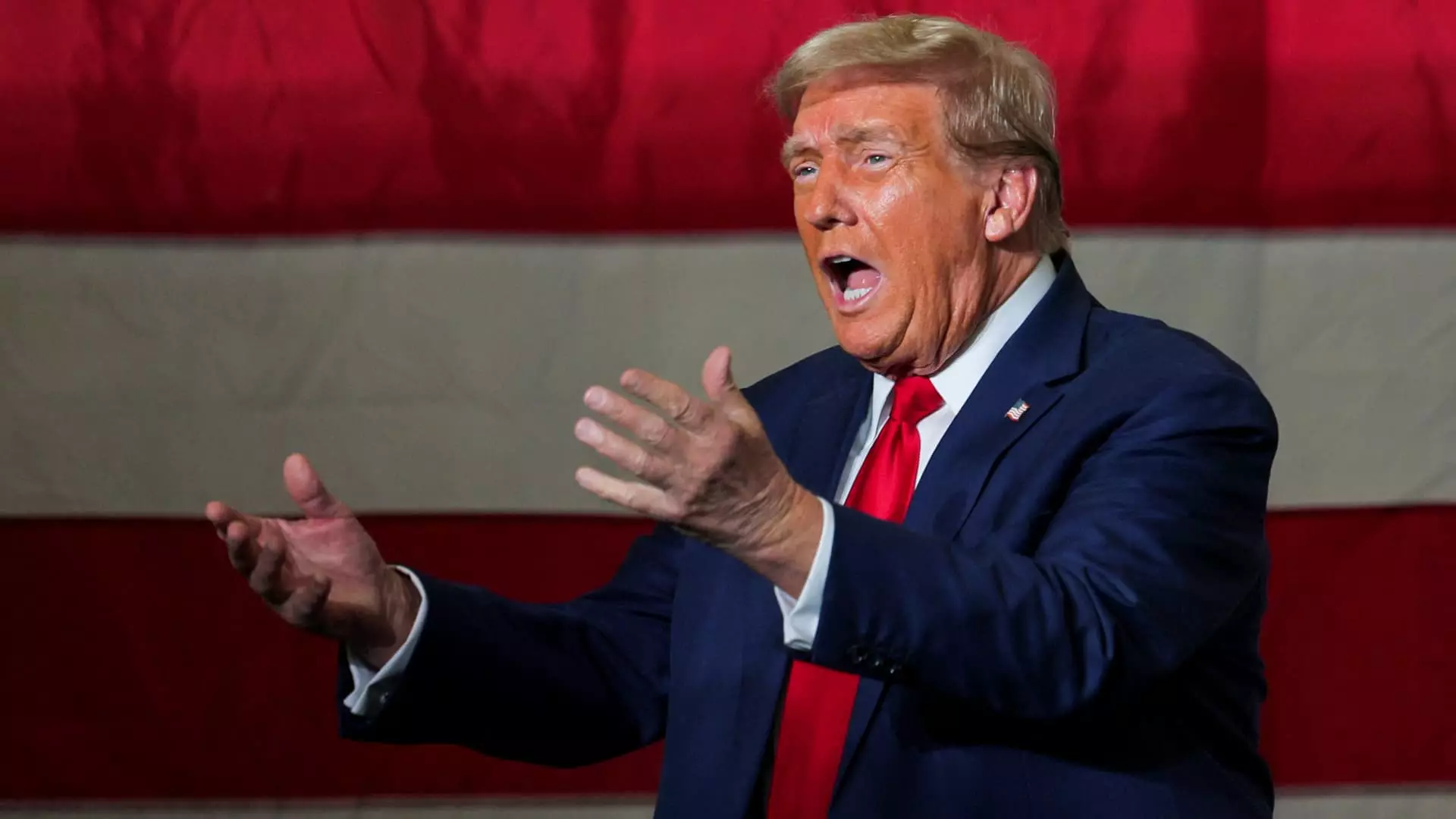The unfolding legal situation surrounding former President Donald Trump has reached a critical juncture, particularly with the redaction efforts of Special Counsel Jack Smith. Recently, a federal judge unsealed a comprehensive 165-page motion that purportedly outlines the evidence against Trump regarding his alleged efforts to subvert the results of the 2020 presidential election. This legal development raises important questions about the implications of presidential immunity, especially in the wake of a Supreme Court ruling that established a presumption of immunity for official acts. However, the intricacies of political maneuvering intertwined with legal proceedings now lie bare before the American electorate as Trump approaches an emblematic showdown against Vice President Kamala Harris in the upcoming election.
Central to the motion is the assertion by Trump’s defense that his actions can be classified as official conduct, thereby granting him immunity from prosecution. However, the prosecution contradicts this claim, suggesting that Trump’s alleged conspiracy to challenge the election results was more personal than presidential. According to Smith’s office, Trump’s actions were fundamentally those of a political contender rather than the sitting President, emphasizing that he engaged in efforts to disrupt the democratic process alongside private co-conspirators with no official capacity.
The prosecution outlines that despite holding the office, Trump’s pursuit of various deceptive strategies was aimed squarely at creating chaos in the election process instead of upholding it. Instances are recounted where Trump’s associates attempted to manipulate vote tabulations in pivotal locations, such as Detroit’s TCF Center, in a desperate bid to alter the election outcome. Thus, the divide between presidential duties and personal interests raises significant legal questions about the extent of immunity afforded to the nation’s highest office.
As highlighted in the unsealed filing, specific events post-election reveal a pervasive inclination toward dubious tactics among Trump’s team. One notable incident involved a campaign employee allegedly urging co-conspirators to “find a reason” to challenge specific batches of votes as unfavorable to Trump. This willingness to fabricate litigation options, even when faced with the prospect of unrest, paints a disturbing picture of political machinations that could undermine electoral integrity. The filing further details a problematic environment where calls for confusion were met with encouragement for potential public unrest—a reflection of a highly charged political atmosphere post-2020 election.
Such allegations cast a long shadow on Trump’s presidency and raise fundamental concerns about the future of American democracy. With individuals within Trump’s circle allegedly advocating for riotous behavior, a narrative emerges that speaks to a calculated and outright scheme to disrupt lawful electoral processes rather than pursue legitimate grievances.
The relationship between Trump and his then-Vice President Mike Pence adds another layer of complexity to the case. Contrary to the increasingly adversarial political scene, the filing alleges multiple attempts by Pence to persuade Trump to accept the election results gracefully. These exchanges reveal a tension between loyalty and conscience, showcasing Pence’s struggle to align his political convictions with the troubling turns in Trump’s response to the election outcomes.
Pence’s efforts to normalize the outcomes by encouraging Trump to view the situation through a less adversarial lens—suggesting he could approach the loss as an “intermission” instead of a defeat—illustrate an earnest dedication to party stability. Yet, Trump’s dismissive responses underscore a disconnection that reverberates throughout the GOP, spawning questions about party cohesion and leadership integrity.
As events unfold, the ramifications of this case reach far beyond legal precedents. With Trump set to face off against Harris in a highly contentious election, the undercurrents of this legal battle are likely to inform public perception and voter engagement significantly. The juxtaposition of a candidate battling legal troubles while asking Americans for their votes introduces an element of moral questioning about leadership accountability.
Should Trump emerge victorious in the election, he will possess the incredible power to influence the ongoing legal proceedings, including the prerogative to potentially dismiss the case against him. This potential outcome poses ethical dilemmas about the interplay between politics and justice, fueling speculation on how the legal landscape may adapt or falter under a renewed Trump administration.
The legal challenges facing Trump encapsulate an extraordinary moment in American history, highlighting the critical importance of upholding the rule of law irrespective of political stature. As the nation braces for the implications of these proceedings in the 2024 election cycle, voters will be confronted with fundamental questions about the health of democracy, accountability, and the enduring narrative of political integrity. Only time will reveal how these multifaceted legal battles influence not just the candidates, but the very core of American governance itself.


Leave a Reply